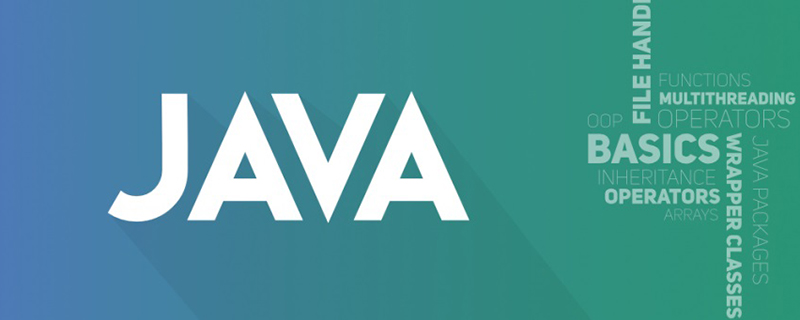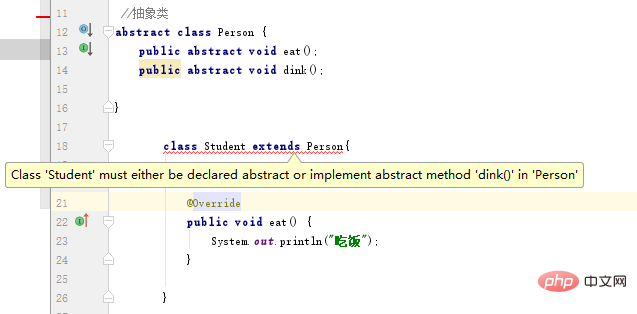

#What are java abstract classes and abstract methods?
In the inheritance of classes, if new subclasses are defined one by one, the subclasses become more and more specific, and the parent class becomes more general and versatile, the design of the class should To ensure that parent and child classes can share characteristics, sometimes the parent class is designed to be very abstract, so that the parent class has no specific instances. Such a class is called an abstract class; generally when we design a class and do not need to create instances of this class, we can consider Set this class as an abstract class and let its subclasses implement the abstract methods of this class
Abstract class
When the abstract keyword is used to modify a class, the class is called an abstract class. An abstract class is a collection of public attributes of all its subclasses and a class that contains one or more abstract methods.
Abstract classes can be seen as further abstractions of classes. In the object-oriented field, abstract classes are mainly used for type hiding.
Characteristics of abstract classes:
(1) Cannot be instantiated
(2) Abstract classes have constructors (all classes have constructors)
(3) The class where the abstract method is located must be an abstract class (because abstract methods have no method bodies. If the class is not an abstract class, then the class can instantiate the object, call the abstract method, and then have no method It is a contradiction if the function is implemented concretely)
(4) An abstract class can have no abstract method
//抽象类
abstract class Person {
String name;
public Person(){}//抽象类的构造方法
public abstract void dink();//抽象方法,无{}方法体
public void eat(){ //非抽象方法
};
}
class Student extends Person{
@Override
public void eat() {
System.out.println("吃饭");
}
@Override
public void dink() {
System.out.println("喝水");
}
}Abstract method (abstract method)
The method modified by abstract is an abstract method, and all abstract methods must exist in the abstract class.
Methods defined in abstract classes are called abstract methods. These methods only have the declaration of the method header, and a semicolon is used to replace the definition of the method body, that is, only the interface form of the member method is defined without the concrete operate.
Characteristics of abstract methods:
(1) Format, no method body, including { }, for example public abstract void dink();
(2) Abstract method only The function of the method is retained, and the specific execution is handed over to the subclass that inherits the abstract class, and the subclass rewrites the abstract method
(3) If the subclass inherits the abstract class and rewrites all the functions of the parent class abstract method, then this subclass is not an abstract class and can be instantiated
(4) If the subclass inherits the abstract class and does not override all the abstract methods in the parent class, it means that there are Abstract method, then this subclass must be declared abstract.

In the above example, the Student subclass inherits the abstract parent class and overrides the eat() abstract method. If it does not override the drink() abstract method, an error will be reported. The solution is to rewrite the drink() method, or turn Student into an abstract class
Use scenarios of abstract classes
Abstract classes are generally used in many applications When in state, it is more applicable
The above is the detailed content of Do you know what java abstract classes and abstract methods are?. For more information, please follow other related articles on the PHP Chinese website!